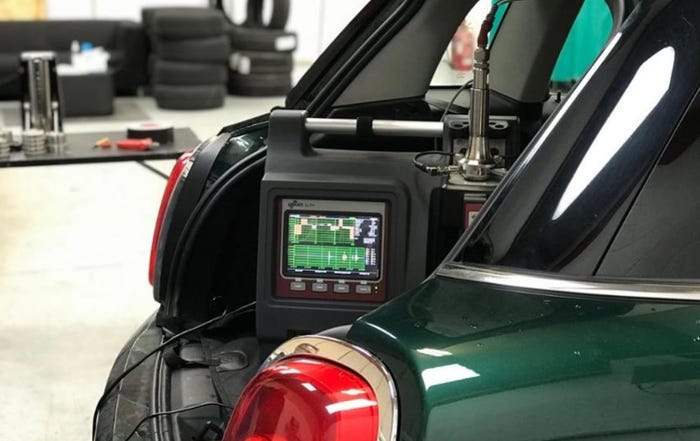Dealers Still Show Skepticism Towards Internet Marketing
Costa Mesa, Ca Car dealers spend a bundle on conventional advertising, yet balk at small allocations for Internet marketing efforts. That baffles Todd Stainbrook, even though he says he understands the dealer after spending much of his Ford Motor Co. career in the field. Same-brand auto dealers at regional marketing meetings will approve millions of dollars on co-operative TV ads, he says. But then,

Costa Mesa, Ca — Car dealers spend a bundle on conventional advertising, yet balk at small allocations for Internet marketing efforts.
That baffles Todd Stainbrook, even though he says he understands the dealer “mindset” after spending much of his Ford Motor Co. career in the field.
“Same-brand auto dealers at regional marketing meetings will approve millions of dollars on co-operative TV ads,” he says. “But then, when there's a proposal to spend $25,000 on digital advertising, you've never heard so many skeptical questions.”
His job as digital integration manager for Ford, Lincoln and Mercury brands is to nudge dealers into the brave new world of digital marketing and make it a foundation of their ad plans.
“We've made a lot of progress but we have a lot to do,” he says at ENG's annual automotive customer relationship management conference here. “There's a lot of room for improvement.”
Stainbrook adds: “The days are changing from dealers saying, ‘I must have a TV (ad) plan, I must be in newspapers, I must do direct mailing, and, oh yeah, what about digital?’”
Still, he adds, many dealers have a last in, first out mentality towards such marketing that ranges from online banner ads to search-engine optimization.
Digital marketing has become a $28 billion part of the ad industry. But at 11.5%, it accounts for the lowest portion of automotive advertising, Stainbrook says.
Yet many dealers are “getting it,” some faster than others, he says. “I've seen a whole new perspective. Dealers today are much more receptive. You can't escape that huge online presence. In a few years, there will not be a digital discussion anymore.”
Because Ford reaches 70% of its buyers online, “we want to make sure we are relevant to them,” he says.
Relevance is essential when dealing with the younger generation of Internet-savvy car buyers, he says. “Their expectations are high, they are focused on themselves and they are shocked if they get something that's not relevant.”
As Internet marketing evolves, “we're beyond, ‘Why digital?” he says. “Today, there is no arguing with it. Now, it is a question of what to do next.”
Also evolving are opinions on the best way for dealerships to interact with Internet customers. Responding quickly to their emails once was — and largely is — considered a must.
“But it's not all about speed,” Stainbrook says. “The mantra used to be: ‘I've got to respond to their emails within five minutes.’ That helps. But consumers are looking for information. If all you are interested in is speed, you are missing out on opportunities.
“If consumers, who've done their homework, email you with questions, and you quickly reply, ‘When can you come into the dealership? I'm here until 9,’ that speedy response isn't going to impress them.”
He cites what dealerships should do online to enhance the chances of a sale. Some of those “key drivers” are:
Show real interest.
Give pricing. That remains an issue with some dealerships, but Stainbrook says 72% of Internet users who readily get prices online end up buying.
Confirm vehicle availability. When that's done, 75% of customers buy vehicles.
Make multiple contacts, including long-term follow ups. “The reality is that people are in the market a long time, so you need a robust CRM (customer relationship management) application that will follow up for a long time,” Stainbrook says.
About the Author
You May Also Like





